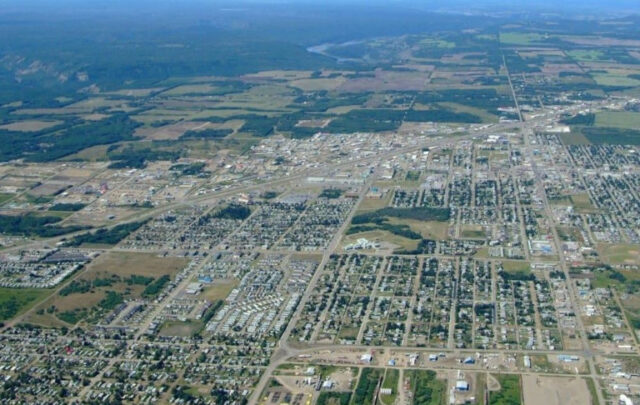Click on the headline (link) for the full text.
Many more articles are available through the Energy Bulletin homepage
Gorbachev Urges G8 to Back Solar Power, Not Oil or Nuclear
Philip Thornton, AFP via Common Dreams
Former Soviet President Mikhail Gorbachev urged the world’s biggest industrialized nations to set up a 50-billion-dollar (44-billion-euro) fund to support solar power, warning that oil or nuclear energy were not viable energy sources for the future.
Gorbachev — who chairs an environmental thinktank, Green Cross International — called on leaders of the Group of Eight (G8) industrialized nations to invest in renewable energy sources, in a statement marking the 20th anniversary of the Chernobyl nuclear disaster.
As leader of the Soviet Union in 1986, Gorbachev led the immediate response to the world’s worst nuclear disaster, which led to at least 4,000 deaths and sent a radioactive cloud over parts of Europe.
The Green Cross proposals were contained in a letter sent to the leaders of the Group of Eight industrialized nations who are due to meet in Russia in July. Some of the proposals were reported last week in the Financial Times.
“This idea reflects our vision of a way of helping the energy-impoverished in the developing world, while creating concentrations of solar energy in cities that could be used to prevent blackouts,” Gorbachev said.
Solar energy would also “lower electricity bills, and would provide a source in the future for generating renewable hydrogen fuels,” he added.
“The fund could easily be raised by cutting subsidies for fossil fuels like oil and coal.”
(27 April 2006)
Energy and the airline industry
John Heimlich, Air Transport Assoication (ATA)
ATA chief economist discusses the airline industry’s energy situation
Vice President and Chief Economist John Heimlich provides some perspective on jet fuel and its implications for industry operations and financial performance….
Q: Okay, well how much have jet fuel prices risen and what does that mean for airlines?
A: Simply put, today’s jet fuel prices are crushing, and could prove to be a knock-out blow for some. Thanks to the high price of crude as well as a range of issues with refining capacity, product distribution, and market speculation, jet fuel prices have soared. And keep in mind — unlike other modes of transport, airlines have no alternative to jet fuel. Even before Hurricane Rita landed, we saw two additional bankruptcy filings, not to mention significant reductions in domestic air service. Others may be on the horizon. …
Q: What is driving high fuel prices?
A: Fuel prices are influenced by a myriad of global and local factors, but are heavily correlated with the price of crude oil, which is being driven principally by a robust global economy, increasing supply tightness, geopolitical insecurity, and unique production and demand factors, and, most recently, Hurricanes Katrina and Rita, among other causes.
Q: The technical specifications for jet fuel make it more complex to refine.
A: U.S. buyers have also been somewhat disadvantaged in recent years vs. their foreign counterparts, due to a relatively weak dollar. Beyond the price of crude oil, the price of jet fuel has risen sharply with overburdened refineries, competition with other products in multi-product pipelines and refinery outages.
Q: Why don’t airlines pass on the cost of higher fuel to passengers?
A: Within the airline industry, everyone knows competition is intense. But we also compete with other modes of transport and with various forms of technology, or with customers not traveling at all. That makes demand for air transport highly price-sensitive, or “elastic.” People may be willing to travel by air these days, but it’s at a far lower price than once paid. This is playing out in particular on shorter-haul routes, where the airport experience has become more uncertain and substitutes such as bus, car or train abound. Although airlines have recently passed through a few price increases, they pale in comparison to the magnitude of the sustained rise in jet fuel prices.
(19 April 2006)
Fuel Prices Have U.S. Workers Eyeing Telecommuting
Reuters via PC Magazine
With gas prices near all-time highs, telecommuting is becoming a win-win for companies and their staff-leaving workers paying less for gas and offering hidden benefits for employers.
Telecommuting has moved beyond a scheme to ease the struggles of stressed-out workers to a system that saves money for company and employee alike, companies and experts say. Companies can keep workers they might otherwise lose, while workers can count the benefit in terms of cold, hard cash, they say.
Opting to let employees work from home as fuel prices have risen, Florida’s Kissimmee Utility Authority managed to retrieve the experience and skills of a veteran employee in the billing department who quit last year.
She now telecommutes from a new home 746 miles away.
“I love it. I’m saving gas by not having to go out to do another job,” said the employee, Debbie Brandt, from her home in Forest, Virginia.
(27 April 2006)
Computer energy use under scrutiny
Wind-up or solar powered PCs?
Bob McDowall, IE4C, The Register
Well-honed phrases about cheaper and greater computing power have all but faded from the marketing, sales, and other promotional material of IT vendors and consultants to the sector.
Rising energy costs over the past year, as well as concerns about the scale of availability of energy in the short-term, especially over the winter period, and more strategically over the longer term, are encouraging enterprises to review their energy requirements for computing purposes. This historically somewhat dull subject is assuming an unheard of level of interest and importance.
Computer technology installations both large and small comprise many parts. Power consumption fluctuates so much depending on use that it is extremely difficult to calculate. As a very rough rule of thumb, the quieter a computer is, the lower the power consumption. This is because it is creating less heat, and therefore needs fewer fans to cool it. The main areas of consumption are power supply, high performance graphics cards, and processors. Screensavers do not save energy.
(27 April 2006)





